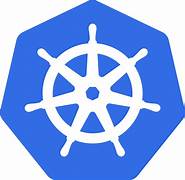Best Kubernetes DevOps Tools
DevOps tools for Kubernetes plays a crucial role. Kubernetes is a robust platform with extensive capabilities for managing containers at scale in production environments. However, despite its advanced features, it remains a complex system that lacks essential components needed for real-world applications.

Ecosystem tools fill these gaps, making it easier to integrate Kubernetes with other DevOps processes, such as enabling GitOps and CI/CD-driven deployment. These tools can also simplify Kubernetes by providing convenient ways to provision new clusters, inspect workloads, and monitor utilization and costs.
Core Kubernetes Tools:
kubectl:
This command-line interface (CLI) is an essential tool for interacting with Kubernetes clusters. It provides a comprehensive set of commands to create, deploy, and manage applications within a Kubernetes environment. With kubectl, you can perform a wide range of tasks such as scaling applications, rolling out updates, and troubleshooting issues. Its powerful features allow you to access and control your Kubernetes resources effectively, making it a fundamental tool for Kubernetes administrators and developers.
Kubernetes Dashboard:
The Kubernetes Dashboard is a web-based user interface that offers a visual representation of your Kubernetes clusters. It simplifies cluster management by providing an intuitive graphical interface where you can perform basic operations such as deploying applications, monitoring resource usage, and inspecting logs. The dashboard allows users to view and manage Kubernetes resources, including Pods, Services, and Deployments, in a more accessible and user-friendly manner.
Helm:
Helm is a Kubernetes package manager that facilitates the deployment and management of complex applications by using pre-configured templates called “charts.” These charts encapsulate all the necessary Kubernetes resources and configurations, making it easier to deploy, update, and manage applications. Helm simplifies the process of managing application lifecycles by providing version control, rollback capabilities, and dependency management, thereby streamlining the overall deployment process.
Kustomize:
Kustomize is a tool designed to manage and customize Kubernetes configurations without altering the original YAML files. It allows users to define and apply configuration overlays, enabling the customization of Kubernetes resources based on different environments or use cases. With Kustomize, you can create a base set of configurations and then apply specific modifications or additions for different deployment scenarios, enhancing the flexibility and maintainability of your Kubernetes configurations.
Continuous Integration (CI) and Continuous Delivery (CD)

CI and CD are crucial for speeding up application development and deployment. CI automates the integration of code changes, while CD automates deployment to production environments.
- Jenkins: This popular open-source CI/CD tool integrates with Kubernetes to streamline building, testing, and deploying applications. Notably, Jenkins is known for its extensive plugin ecosystem and flexibility.
- GitLab: GitLab offers a comprehensive DevOps platform with built-in CI/CD capabilities and Kubernetes integration. As a result, it simplifies the entire development lifecycle, from code management to deployment.
- CircleCI: A cloud-based CI/CD platform, CircleCI is recognized for its rapid build times and easy Kubernetes integration. Additionally, its scalable infrastructure enhances performance and reduces setup time.
- Tekton: Tekton is a cloud-native CI/CD platform built on Kubernetes, providing a flexible and scalable solution for managing pipelines. Consequently, it uses Kubernetes-native constructs to efficiently handle builds, tests, and deployments.
Configuration Management Tools

Configuration management tools are crucial for efficiently managing and automating Kubernetes environments.
Ansible:
Ansible is an agentless automation tool renowned for its simplicity and ease of use. It excels in managing Kubernetes clusters by automating tasks such as application deployment, configuration management, and network settings. With Ansible, you can define your infrastructure and application requirements in YAML files, enabling straightforward, repeatable, and consistent configurations across environments. Its agentless nature means no additional software needs to be installed on the managed nodes, simplifying management and reducing overhead.
Terraform:
Terraform is a leading infrastructure as code (IaC) tool, specifically designed for provisioning and managing Kubernetes clusters and resources. By utilizing declarative configuration files, Terraform enables you to define your infrastructure precisely. Consequently, it uses these configurations to create and manage resources across various cloud providers and on-premises environments.
Terraform’s state management and modular approach enable precise control over infrastructure changes, facilitating robust, scalable, and reproducible deployments.
Pulumi:
Pulumi is another IaC tool that supports Kubernetes, offering a programmatic approach to managing infrastructure. Unlike traditional declarative tools, Pulumi allows you to write infrastructure code in general-purpose programming languages like JavaScript, TypeScript, Python, and Go. This approach provides greater flexibility and integration with existing development practices, enabling dynamic and sophisticated infrastructure management.
Service Mesh

Service meshes are crucial for managing and securing microservices within Kubernetes environments.
Istio:
Istio is a comprehensive service mesh platform that provides advanced traffic management, security, and observability for microservices deployed on Kubernetes. It enables fine-grained control over traffic routing, load balancing, and policy enforcement, while also offering robust security features like mutual TLS and authentication. Istio’s observability tools provide detailed insights into service interactions, performance metrics, and logs, helping to monitor and troubleshoot complex microservices architectures.
Linkerd:
Linkerd is a service mesh solution focused on simplicity and performance. It offers essential features for managing microservices, including traffic management, load balancing, and service-to-service communication.
Linkerd is designed to be lightweight and easy to deploy, with a minimal impact on application performance. Its user-friendly interface and straightforward configuration make it an attractive option for teams seeking to implement a service mesh with minimal overhead while still achieving reliable service management and monitoring.
Monitoring and Logging

Effective monitoring and logging are vital for maintaining and troubleshooting Kubernetes environments.
Prometheus:
Prometheus is an open-source monitoring system designed for collecting and storing metrics from Kubernetes applications. It uses a time-series database to track and query metrics, thereby providing detailed insights into system performance and application health. Moreover, Prometheus’ powerful query language and alerting capabilities help detect and address issues proactively.
Grafana:
Grafana is a leading visualization and analytics platform that integrates with Prometheus and other data sources. As a result, it allows users to create customizable dashboards and visualizations to explore and analyze metrics. Additionally, Grafana’s rich set of plugins and flexible query options enable detailed monitoring and reporting. Consequently, it helps teams gain actionable insights from their data.
Elasticsearch, Logstash, Kibana (ELK):
The ELK stack is a popular suite for centralized log management and analysis. Specifically, Elasticsearch serves as a scalable search and analytics engine, while Logstash handles log ingestion and processing. Additionally, Kibana provides a user-friendly interface for visualizing and exploring log data. Together, these tools offer a comprehensive solution for aggregating, searching, and analyzing logs from Kubernetes and other systems.
Fluentd:
Fluentd is an open-source log collector that facilitates the collection, transformation, and forwarding of log data. Specifically, it can be configured to send logs to Elasticsearch or other storage solutions, thereby enabling efficient log management and analysis. Additionally, Fluentd’s flexible architecture and wide range of plugins make it a versatile choice for handling diverse logging needs.
Additional Tools
Several additional tools enhance Kubernetes functionality and management:
Kubecost:
Kubecost provides insights into cloud costs and resource usage within Kubernetes environments. Specifically, it helps organizations analyze spending, optimize resource allocation, and manage budgets by offering detailed cost breakdowns and recommendations. Consequently, Kubecost’s features enable better financial control and cost efficiency in cloud-native operations.
Argo CD:</strong
Argo CD is a declarative continuous delivery (CD) tool designed specifically for Kubernetes. It manages and automates the deployment of applications by using Git repositories as the source of truth for configurations. Argo CD offers real-time synchronization, automated rollbacks, and visual dashboards, facilitating seamless and consistent application delivery.
Rook:
Rook is a storage orchestrator that brings cloud-native storage solutions to Kubernetes. It automates the deployment and management of storage systems such as Ceph and EdgeFS, enabling scalable and resilient storage solutions within Kubernetes clusters. Rook integrates storage management into the Kubernetes ecosystem, simplifying operations and improving storage reliability.
Cert-Manager:
Cert-Manager is a tool for managing TLS certificates in Kubernetes environments. Specifically, it automates the issuance, renewal, and management of certificates from various Certificate Authorities (CAs). Moreover, Cert-Manager ensures secure communication by seamlessly integrating certificate management into Kubernetes, thereby making it easier to handle SSL/TLS certificates.
Key Criteria for Evaluating Kubernetes DevOps Tools

When choosing from the many available Kubernetes DevOps tools, it is important to consider the following factors:
User-Friendliness:
Select tools that offer intuitive interfaces and ease of adoption. On the other hand, tools that are overly complex can hinder productivity and increase the learning curve for your team.
Compatibility:
Ensure the tools integrate seamlessly with other components in your DevOps stack. Furthermore, prioritize tools that adhere to open standards rather than proprietary systems to avoid integration challenges.
Community Backing:
Opt for tools supported by active and engaged user communities. Such communities, in turn, contribute to ongoing improvements, provide valuable learning resources, and offer support through shared knowledge.
Pricing:
Assess the tool’s features against its total cost of ownership. Be wary of hidden costs and vendor lock-in, which can impact long-term flexibility and budget.
Scalability & Performance:
Choose tools that can scale with your usage without degrading performance. Additionally, review performance benchmarks and ensure that the tools meet your scalability requirements.
Security:
Evaluate the security practices and access controls of each tool, especially when dealing with sensitive data. Therefore, robust security measures are critical to protecting your Kubernetes environment.
By evaluating tools based on these criteria, you can build a cohesive and effective DevOps toolkit for Kubernetes, ensuring long-term efficiency, optimized workflows, and enhanced benefits from your Kubernetes deployment.
[Want to learn more DevOps tools for Kubernetes? Click here to reach us.]
Conclusion
In conclusion, selecting the right DevOps tools for Kubernetes is crucial for optimizing workflows, scaling operations, and achieving overall efficiency. Kubernetes provides a strong foundation for container management, but its effectiveness is significantly enhanced when paired with appropriate tools for CI/CD, configuration management, monitoring, and security. By considering factors like user-friendliness, compatibility, community support, scalability, and security, you can assemble a powerful DevOps toolkit that meets your specific requirements.
For those seeking expert guidance, Bobcares offers both DevOps and Kubernetes support services. Our team can help you navigate the complexities of Kubernetes and integrate the best tools to fit your needs, ensuring a smooth and effective DevOps implementation. Leveraging Bobcares’ expertise in DevOps and Kubernetes support will further streamline your processes, optimize performance, and drive long-term success in your Kubernetes environment.







0 Comments